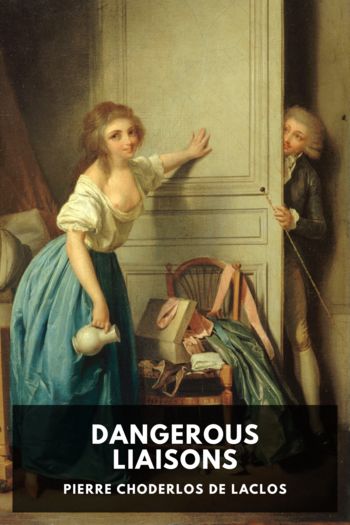The Disappearance of Stephanie Mailer: A gripping new thriller with a killer twist, Joël Dicker [general ebook reader .txt] 📗

- Author: Joël Dicker
Book online «The Disappearance of Stephanie Mailer: A gripping new thriller with a killer twist, Joël Dicker [general ebook reader .txt] 📗». Author Joël Dicker
“Are you coming or going?” she would ask me.
In my chest, my heart was pounding.
“I’m coming.”
I would sit down next to her. She would serve us tea, then roll a joint. I would watch in fascination as her fingers with the polished nails rolled the cigarette paper and she then licked the edge with the tip of her tongue.
Her beauty blinded me, her gentleness made me melt, her intelligence overwhelmed me. There was not a subject she could not talk about, or a book she had not read. She knew everything about everything. And above all, much to my delight and contrary to what my grandparents asserted, she wasn’t really a cousin, or rather, we would have had to go back a good century to find a common ancestor.
Over the weeks, then the months, Natasha’s presence gave rise to a new-found animation in my grandparents’ house. She would play chess with Grandpa and have interminable conversations with him about politics. She became the mascot of the gang of old men from the butcher’s shop, now exiled to a coffee shop on Queens Boulevard. She would converse with them in Russian. She would go with Grandma on shopping expeditions, and help her in the house. They cooked together, and Natasha turned out to be an amazing cook. I found myself spending more and more time at my grandparents’ house and less and less at my mother’s.
The house was often enlivened by the telephone conversations that Natasha had with her cousins—real ones—scattered throughout the world. She would sometimes say to me, “We’re like the petals of a wonderful dandelion, and the wind has blown each of us to different corners of the earth.” She would be on the telephone, whether the one in her room, the one in the hall, or the one in the kitchen with its extendable cord, and babble into the receiver for hours on end, in all kinds of languages and at all hours of the day or night, depending on the time difference. There was the cousin in Paris, the one in Zurich, the one in Tel Aviv, the one in Buenos Aires. Sometimes she would speak English, sometimes French, sometimes Hebrew, sometimes German, but most of the time it was Russian.
The calls must have cost astronomical sums, but Grandpa didn’t say anything. On the contrary. Often, without her knowing it, he would pick up the receiver in another room and listen fascinated to the con-versation. I would sit next to him and he would translate in a low voice. That was how I learned that she often talked to her cousins about me, she would say that I was handsome and wonderful and that my eyes shone. “Krasavchik,” Grandpa explained one day after hearing her call me that, “means ‘handsome boy’”.
Then came Halloween.
That evening, when the first group of children rang the doorbell to ask for candies and Grandma rushed to open it with a bucket of cold water, Natasha cried:
“What are you doing, Grandma?”
“Nothing,” Grandma said shamefacedly, stopping in her tracks, and taking the bucket back to the kitchen.
Natasha, who had prepared salad bowls filled with multicolored candies, gave one to each of my grandparents and sent them to open the door. The children, yelling excitedly, grabbed handfuls of them before disappearing into the night. And my grandparents, watching them run off, cried in a kindly manner: “Happy Halloween, kids!”
In Rego Park, Natasha was like a whirlwind of positive vibes and creativity. When she wasn’t in class or cooking, she would take photographs in the neighborhood, or go to the municipal library. She would constantly leave notes behind to let my grandparents know what she was doing. She sometimes left a note for no reason, just to say hello.
One day when I got back from school, my grandma, seeing me walk in, pointed a threatening finger at me and said:
“Where were you, Jessica?”
When she was very angry with me, Grandma still sometimes called me Jessica.
“At school, Grandma,” I said. “Just like every day.”
“You didn’t leave a note!”
“Why should I have left a note?”
“Natasha always leaves a note.”
“But you know I’m at school every weekday! Where else would I be?”
“Bunch of jerks!” Grandpa declared, passing the kitchen door with a jar of pickled cucumbers.
“That’s shit,” Grandma said.
One of the great upheavals occasioned by the presence of Natasha was that Grandpa and Grandma had stopped swearing, at least in her presence. Grandpa had also stopped smoking his awful rolled cigarettes at mealtimes. I discovered that my grandparents could actually behave properly at the table and have interesting conversations. For the first time, I saw Grandpa wearing new shirts. (“Natasha bought them, she said my old ones had holes in them.”) And I even saw Grandma with barrettes in her hair. (“Natasha did my hair. She told me I looked pretty.”)
As for me, Natasha initiated me in what I had never known: literature and art. She opened my eyes to the world. When we went out, it was to go to bookstores, museums, galleries. Often, on Sundays, we would take the subway to Manhattan and visit a museum, the Met, MoMA, the Natural History Museum, the Whitney. Or else we would go to deserted, decrepit cinemas and see films in languages I couldn’t understand. But I didn’t care: I wasn’t looking at the screen, I was looking at her. I was devouring her with my eyes, profoundly disturbed by this totally eccentric, totally extraordinary, totally erotic young woman. She would live the films: she would get angry with the actors, she would cry, get upset, cry some more. And when the show was over, she would say to me, “Beautiful, wasn’t it?” And I would reply that I hadn’t understood any of it. She would laugh and tell me she would explain everything. And she would then take me to the nearest coffee shop, thinking that I couldn’t stand not understanding,





Comments (0)